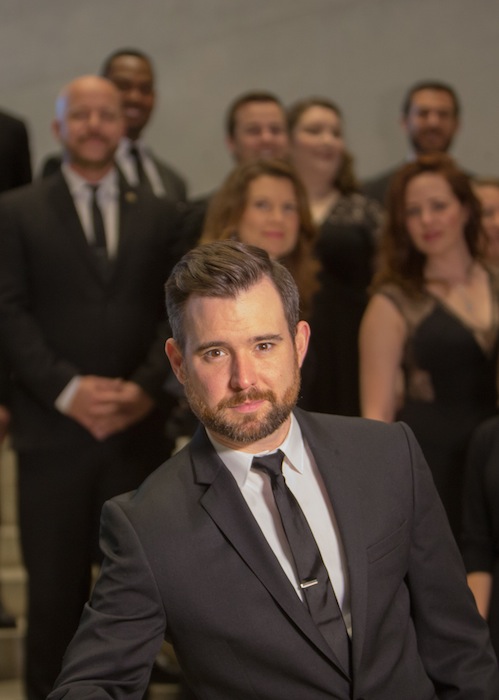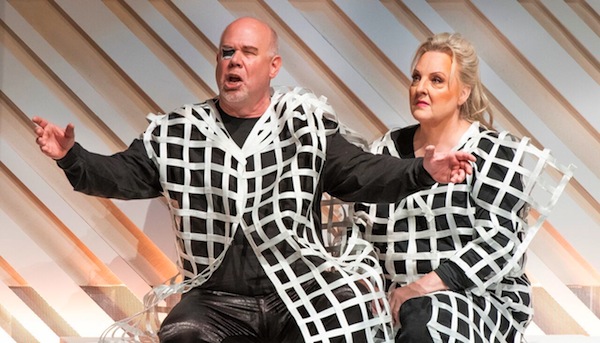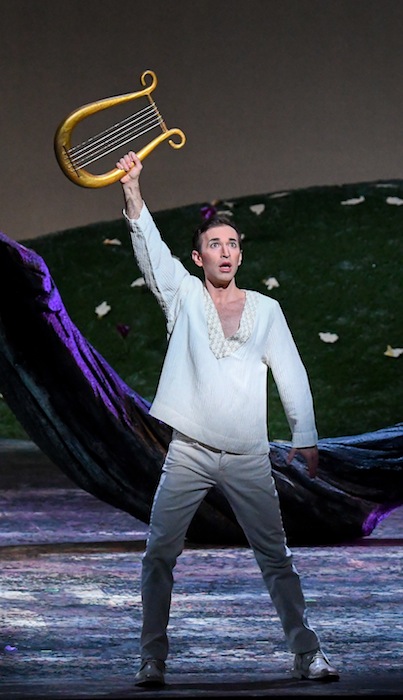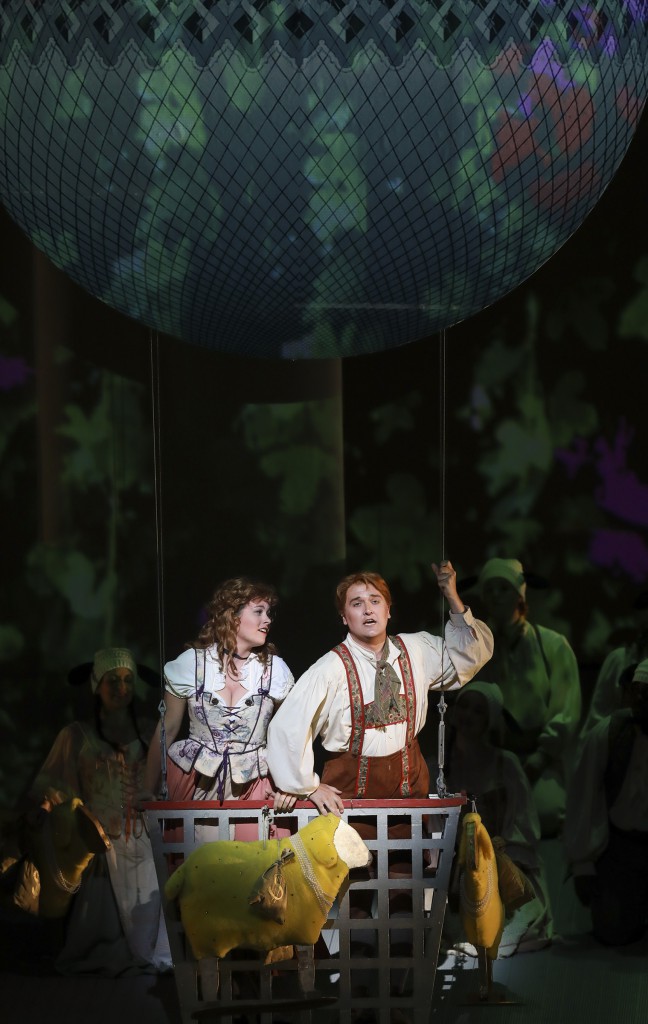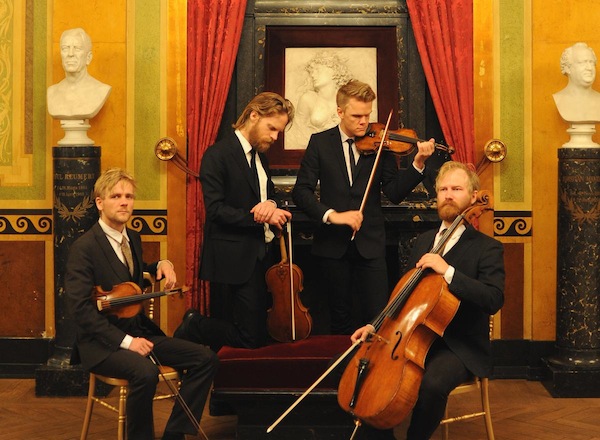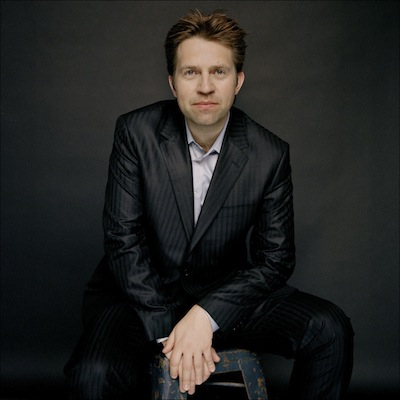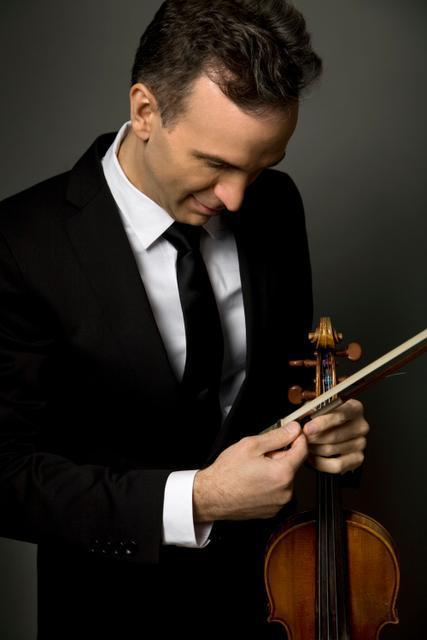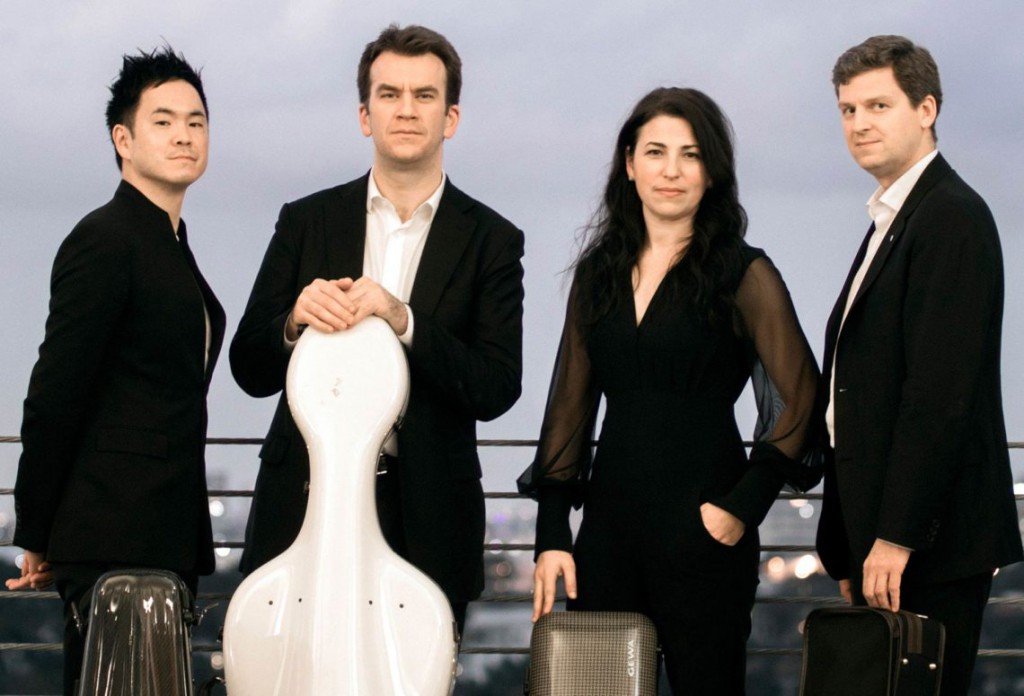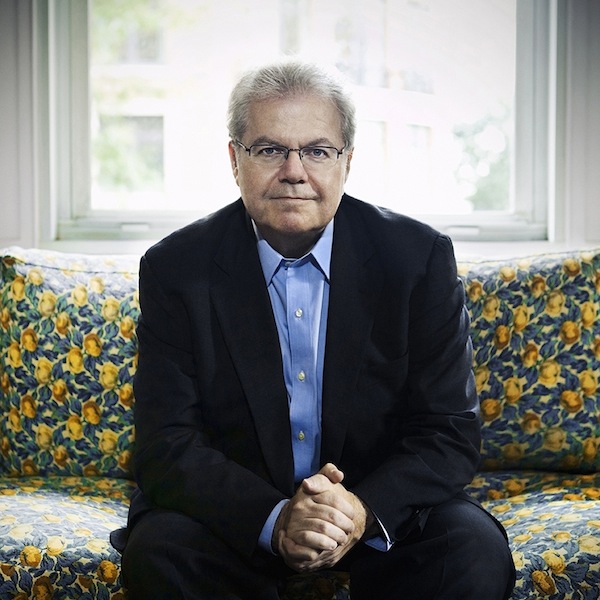Top Ten Performances of 2018
1. Seraphic Fire and Patrick Quigley: Arvo Pärt’s Passio
Patrick Dupré Quigley presented scrupulous, intensely moving performances of three unique scores in Seraphic Fire’s “Parables of Passion” series. Following David Lang’s luminous little match girl passion and a rare performance of Bach’s original version of the St. Matthew Passion, the best was saved for last. Arvo Pärt’s meditative Passio, a singular work of spiritual minimalism, was superbly sung and played by the choir, vocal soloists and accompanying instrumentalists, and these Passion settings proved the most important musical event of 2018. (LB)
2. Miami Music Festival: Act 2 of Wagner’s Lohengrin and Act 2 of Die Walküre
The turbulent, sensuous sounds of Wagner emerged from New World Center as the Miami Music Project gave a rare South Florida performance of excerpts from the German master’s operas. The orchestra of young professionals gave a surprisingly rich, resonant account of the challenging score. But the highlight came in the performance of the veteran bass baritone Alan Held in the second act of Die Walküre. His powerful voice and dramatic sense created a formidable Wotan, an intimidating, complex character, terrifying in his anger and tortured over the results of some really bad decisions. (DF)
3. Florida Grand Opera: Gluck’s Orfeo ed Euridice
Gluck’s pathbreaking fusion of music, dance and drama was seamlessly integrated at Florida Grand Opera in director-choreographer Keturah Stickann’s eye-filling production. Countertenor Anthony Roth Costanzo dominated the stage vocally and dramatically as the minstrel Orfeo. FGO studio artist Jessica E. Jones (originally scheduled only for the second cast) was pressed into service for the entire run at the eleventh hour. Her attractive timbre and chemistry with Costanzo proved perfect for the deceased heroine’s journey back to the land of the living. With stylish musical direction from Anthony Barrese in the pit, Orfeo ed Euridice was a landmark in the history of FGO. (LB)
4. Michael Tilson Thomas and the New World Symphony: Mahler’s Symphony No. 9
Mahler’s last completed symphony received a warmly human, technically flawless performance from the New World Symphony under the baton of one of the composer’s leading interpreters. The searching vulnerability of the opening Andante, and the roiling climaxes and luxuriant ardor of the string playing in the concluding Adagio were among the leading elements of an engrossing performance that fully lived up to the high expectations for Tilson Thomas’s Mahler. (DF)
5. Palm Beach Opera: Bernstein’s Candide
There could hardly be a more celebratory event for the 100th anniversary of Leonard Bernstein’s birth than Palm Beach Opera’s presentation of Candide in February. Perhaps Bernstein’s most sparkling and inventive score, Candide has long been a theatrical problem child but Jay Lessinger’s adaptation of the Hugh Wheeler libretto (itself a revision) perfectly balanced Voltaire’s biting wit and satire with the story’s darker undercurrents. David Stern’s buoyant conducting, Lessenger’s fast-paced staging and superb performances by Miles Mykkanen, Alisa Jordheim and, especially, Denyce Graves, contributed to one of PBO’s finest productions ever. (LB)
6. Danish String Quartet: All-Beethoven program
Tackling quartets from Beethoven’s three compositional periods a the Broward Center, the Danish String Quartet gave a dazzling tour of the composer’s creative life. They began with a light and well-proportioned performance of the third quartet from his youthful Op. 18 set, playing in a lively style that never allowed this Classical-era work to come off as mannered or mechanical. After a crisp, dramatic account of the Op. 59, No. 1 quartet, the group scaled one of the Everests of the chamber literature, with a taut, absorbing performance of Beethoven’s knotty, seven-movement Op. 131. (DF)
7. Leif Ove Andsnes with Michael Tilson Thomas and the New World Symphony
Leif Ove Andsnes is one of the most intelligent, probing pianists on the contemporary concert scene. In February Andsnes joined MTT and the New World Symphony for a rare performance of Debussy’s Fantaisie for piano and orchestra, a work that finds Debussy combining Russian bravura with his early impressionistic voice. Andsnes perfectly mixed powerful virtuosity with elegance and sensitivity. Stravinsky has long been an MTT specialty and the NWS players were in top form for a lustrous, edgy reading of the complete original version of The Firebird on the same program. (LB)
8. Gil Shaham with Pablo Heras-Casado and the New World Symphony: Bartók’s Violin Concerto No. 2
The violinist Gil Shaham has such a smooth playing style that the spiky Bartók Second Violin Concerto may not seem to be the right match for him. But in his performance of the work with the New World Symphony, he displayed the vast range of his talents. He brought grinding force to passages on the lower strings, romantic warmth to lyric sections of the first and second movements and played throughout with the sort of fiery intensity demanded by this difficult work. (DF)
9. The Ehnes Quartet: Music of Beethoven
The Ehnes Quartet’s annual Beethoven programs for Friends of Chamber Music have been highlights of recent concert seasons. At their February visit, violinist James Ehnes and his colleagues reached a summit in their continuing traversal of the complete Beethoven quartets with a bracing reading of the penultimate Quartet in C-sharp minor, Op. 131. The foursome made the often played score sound new and audacious, probing the depths of human emotion. The shapely bounce and verve of the sunny Quartet No. 2 and a vigorous ride through the rarely heard Quintet in C Major (with guest violist Roberto Díaz) were contrasting sweets in an evening of Beethoven playing of the highest order. (LB)
10. Emanuel Ax with Michael Tilson Thomas and the New World Symphony: Beethoven and Sibelius
After more than four decades on the world’s concert stages, there is still a light sparkle in Emanuel Ax’s touch. The veteran pianist gave an exquisite and refined performance of Beethoven’s Piano Concerto No. 1 at New World’s first downtown concert of the season in November at the Arsht Center. Tilson Thomas’s fine detailing and balancing of orchestra lines was a textbook lesson in perfect collaboration. Long one of the world’s best Sibelius conductors, MTT led an unhurried, magisterial rendition of the Symphony No. 5. With all sections in top form, this was one of New World’s best nights of the year. (LB)
Honorable Mentions
Patrick Quigley continues to present some of the most inventive and striking choral programs ever offered in South Florida. In November he recreated the music of a 17th century Tenebrae service for Holy Saturday of Easter week. The central focus was the music of the notorious Prince Carlo Gesualdo, one of the most original composers of any era. Contrasted with the plainchant and liturgical works of his contemporaries on the program, Gesualdo’s scores were shocking in their chromaticism and dissonance. Fielding a well-drilled thirteen-voice all-male choir, Quigley unerringly commanded the contrasts between the wild leaps and harmonic complexity of Gesualdo’s works and the austere reverence of the chant. (LB)
Gerard Schwarz conducting the UM Frost Symphony Orchestra in taut, high-precision performances of David Diamond’s Symphony No. 4 and Bruckner’s Symphony No. 4; the New World Symphony’s Ravel evening under Stephane Denéve; Kirsten Chambers vocal-dramatic tour de force in the title role of FGO’s riveting production of Strauss’s Salome; Anna Netrebko and Yusif Eyvazov’s thrilling, full-throated vocalism in an evening of operatic arias and crossover favorites. (LB)
Among the many gifts of the French conductor Stéphane Denève is a talent for making light works come off as masterpieces. He led the New World Symphony in a performance of Respighi’s tone poem The Pines of Rome, which generated maximum intensity and force from these pictorial vignettes from the Italian capital—colorful, sinister and triumphant—placing instruments around the hall to maximize the dramatic impact. On the same program, the cellist Johannes Moser gave a terrific performance of Saint-Saëns’ Cello Concerto No. 1, in a richly symphonic, deeply felt performance of a work that can come off as an extended showpiece. (DF)
Also, Matthew Polenzani’s lyric tenor was in full bloom for Vaughan Williams’ song cycle On Wenlock Edge with Roberto Abbado and NWS; Michelle Bradley’s soaring Verdi and Strauss in recital for Friends of Chamber Music; Zoltan Fejévári’s revelatory Bach, Schumann and Liszt in a debut recital for the Miami International Piano Festival; Joseph Kalichstein’s wildly manic and lyrical reading of Schumann’s Kreisleriana for Friends of Chamber Music; Seraphic Fire’s “Spanish Pilgrimage” and Shakespeare programs; Clémentine Margaine’s dusky mezzo in Chausson’s Poéme d’amour et de la mer, superbly accompanied by the Chicago Symphony Orchestra under Riccardo Muti. (LB)
Florida Grand Opera for presenting Daniel Catán’s sensuous, atmospheric 1996 opera Florencia en el Amazonas; Master Chorale of South Florida for a stately and moving performance of Brahms’ German Requiem; the Cleveland Orchestra and music director Franz Welser-Möst for an all-Beethoven concert that relied on rhythmic vigor and percussive force rather than sheer symphonic weight to express the composer’s ideas. (DF)
Dishonorable Mentions
Pinchas Zukerman conducting the Royal Philharmonic in a plodding, listless Beethoven Seventh; James Gaffigan’s half-baked rendition of Sibelius’ Fourth Symphony with the New World Symphony; Edwin Outwater’s loud and ragged accompaniments at the New World’s Concerto Night; David Adam Moore’s coarsely sung, hectoring Count Almaviva—a crucial weak link in an otherwise excellent Palm Beach Opera production of Mozart’s The Marriage of Figaro. (LB)
Backstage Drama Part I
In July Susan P. Danis announced that she was leaving her position as CEO and executive director of Florida Grand Opera after six years to become CEO and President of the La Jolla Music Society and Conrad Presbys Performing Arts Center in San Diego. Just seven weeks later FGO announced that Danis would be staying with the Miami company after all. According to press releases issued by FGO and LMS, baritone Graham Fandrei, a former director of FGO’s young artist program, sent a letter under a false name to the board chairperson and staff of LMS defaming Danis with malicious intent. After Danis responded to and discredited the unspecified allegations, Fandrei retracted the letter, admitted that what he wrote was false and apologized to Danis, FGO and LMS. By “mutual agreement” with LMS, Danis withdrew acceptance of the California position and the FGO board voted unanimously to reinstate Danis.
While the details remain murky as to why LMS rescinded Danis’s job offer, the winner in this bizarre operatic melodrama is definitely South Florida. Danis’s continued presence at FGO means more of the diverse repertoire she has championed and the high standards of production and musical performance she has instilled after decades of mediocrity under her predecessor. (LB)
Backstage Drama Part II
@MeToo Florida Grand Opera
Veteran opera director Bernard Uzan resigned as head of Florida Grand Opera’s Studio Artist Program after being named in an article in the Washington Post that shook the classical music world with its revelations of sexual harassment by prominent musicians. Four young female singers went on the record to accuse Uzan of unwanted sexual advances or intimidation. (None of the incidents took place in Florida.) Uzan denied the charges but acknowledged “mistakes” and invoked his upbringing in a different time and place.
“I come from a very different culture, I am of the sixties generation, which is not an excuse, but simply a fact, and I have made my mistakes throughout my life,” he said. “If I have offended any of you, I deeply apologize.” (DF)
@MeToo Cleveland Orchestra
The Cleveland Orchestra, which comes to Miami every winter for a highly anticipated if shrinking program of concerts, fired two of its most prominent members for sexual misconduct.
Concertmaster William Preucil and principal trombonist Massimo La Rosa lost their jobs in October, after an investigation by a law firm engaged by the orchestra found they had used their positions to intimidate young women into silence after subjecting them to unwanted sexual advances. Both had been instructors at several institutions, including the New World Symphony, from which at least two of Preucil’s victims had been members, according to the Washington Post. (DF)
Best Contemporary Works
Joy by Magnus Lindberg (played by the New World Symphony under contemporary music specialist Jeffrey Milarsky) abounded in spectral effects and fiercely contrasting timbres that entranced the ear. David Lang’s three broken wings mixed minimalism with Caribbean seasoning. Scored for piano, violin, clarinet, flute and percussion and played by members of Nu Deco Ensemble, Lang’s score constantly surprises the listener with new incidents and progressions. (LB)
Most Worthy Revival
Walter Piston’s bristling neo-classical Sinfonietta in a tautly controlled performance by The Symphonia under Gerard Schwarz in Boca Raton. (LB)
Music benefactor accused of fraud
Billionaire Phillip Frost, who gave his name and a lot of his money to the University of Miami’s Frost School of Music, was accused by federal regulators of committing securities fraud. The Securities and Exchange Commission says Frost participated in pump-and-dump schemes to dishonestly inflate the value of stocks in small companies, allowing him to sell his shares at a profit. He has denied the accusations and remains a senior member of the university’s board of trustees. (DF)
Most Site-Specific Presentation
Orchestra Miami presented an English-language version of Mozart’s The Magic Flute at Scottish Rite Temple in downtown Miami with actual Masonic backdrops to complement the scenes of Masonic ritual. Elaine Rinaldi’s well coordinated leadership and Yunah Lee and Gregory Schmidt’s excellent singing brought strong musical values to Mozart’s valedictory operatic masterpiece. (LB)
Best New Artists
In a recital for Friends of Chamber Music, soprano Hyesang Park, a member of the Metropolitan Opera’s Lindeman Young Artist Development Program displayed gleaming tone, glittering and precise coloratura and gracious charm. Park particularly excelled in French repertoire—the songs of Fauré and Reynaldo Hahn, operatic Massenet and the cabaret vignettes of Poulenc.
Dean Whiteside has been one of New World Symphony’s most gifted conducting fellows. Whether leading Wagner, Fauré or Ligeti, Whiteside not only maintains tight control and well-balanced ensemble but imbues each score with idiomatic flair and sensitive interpretive instincts. (LB)
Most Ambitious Event
The Miami Music Festival presented a five-week, summer mini-season that, for sheer ambition, may have been the most adventurous opera lineup ever staged in South Florida. With Strauss’s Ariadne auf Naxos as the most familiar work presented, other offerings comprised a double bill of Purcell’s Dido and Aeneas and Gian Carlo Menotti’s The Medium, Benjamin Britten’s A Midsummer Night’s Dream, Puccini’s La Rondine and John Corigliano’s The Ghosts of Versailles. Imaginative productions and consistently strong performances by the student and young professional singers and orchestra musicians reached a new standard for the festival. (LB)
Posted in Articles
Leave a Comment
Fri Dec 21, 2018
at 3:00 pm
No Comments
